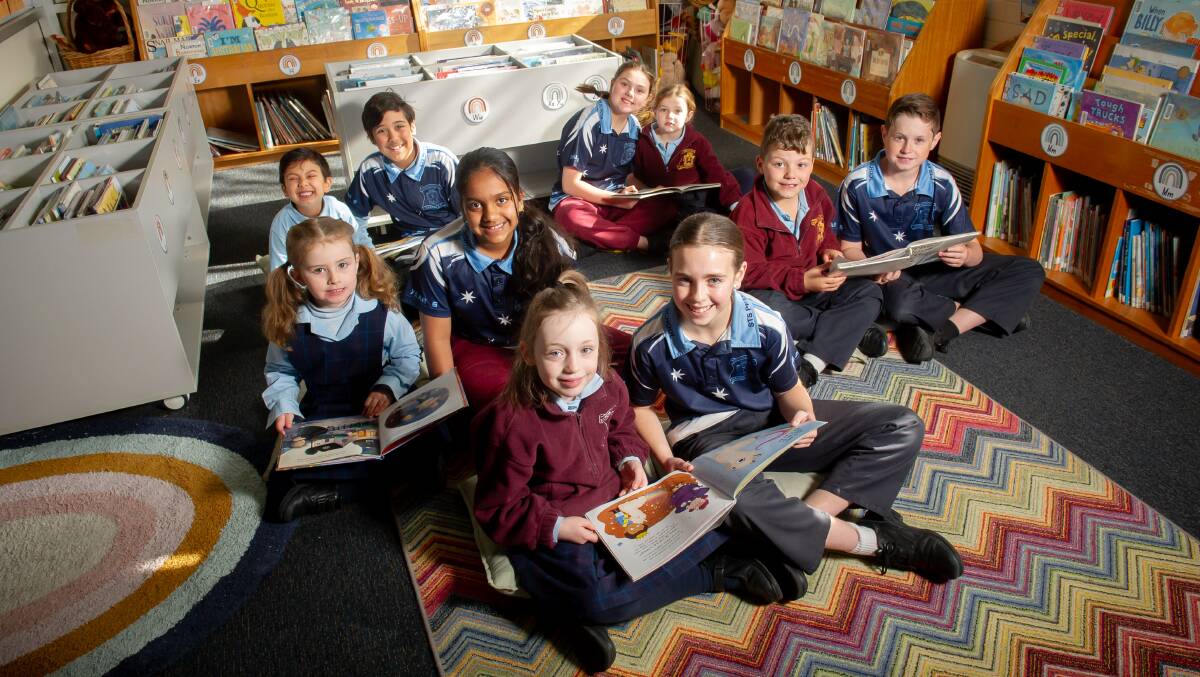New NAPLAN results have proved the value of explicit instruction, a Canberra principal says.
Subscribe now for unlimited access.
or signup to continue reading
The Catholic Education in the Canberra Goulburn archdiocese implemented the science of learning and an explicit method of teaching in 2020.
The direct instruction model involves breaking concepts down, involving students and getting regular feedback.
Many ACT schools use inquiry-based learning or unguided instruction, which the Australian Research Education Organisation says is not evidence-based.

Breaking things down
This year's NAPLAN results have shown the efficacy of the explicit method, St Peter and Paul Primary School principal Cameron Johns said.
"The results are very pleasing and it's certainly an indication of the great work that the system has put into schools," he said.
"I do think it's evidence that it's working.
"I think that it's particularly good for students who come in perhaps without a strong literacy background."
In the science of reading, teachers focus on phonics - the sounds that make up words.
"You teach children how to read first, and then after that you teach them what to read and how to make [sense of it]," Mr Johns said.
Later on, they learn the structure of a sentence, and a paragraph.
Mr Johns said while introducing the method to his school was successful, it was up to every principal to decide what is best for their school.
NAPLAN results
NAPLAN 2023 results were released on Wednesday, with NSW and Victoria performing better than the ACT across all domains except reading.
NAPLAN's proficiency standards have changed, meaning individual results are ranked as exceeding, strong, developing or needs additional support.
These results cannot be compared with previous years.
The ACT has a large proportion of high socioeconomic students, which should correlate with better NAPLAN results.
Two-in-five ACT students are in the top socioeconomic quarter; 33 per cent are in the third top quarter, 18 per cent in the third quarter, and only 10 per cent in the lowest.
However, the ACT's results were on-par with the rest of Australia in every grade and domain, according to an ACARA graph.

The ACT performed better than every other jurisdiction in year 5, 7 and 9 reading.
But either NSW or Victoria had better results in every other domain and grade, and both states exceeded the ACT in writing and numeracy in every grade.
READ MORE:
An ACT government spokesperson said the ACT "continued to deliver a very strong and stable performance" in this year's NAPLAN.
"The proportion of ACT students achieving at the strong or exceeding level is similar to or above the national proportion in all year levels and domains," they said.
"The ACT has the highest or equal highest mean score performance across 19 of 20 year levels and domains."
In the ACT, males performed the same as females in reading and spelling; worse in writing, and better in numeracy in all grades except for year 9.
Grammar and punctuation results were the same for both gender in primary school, but females did better in year 7 and 9.
We've made it a whole lot easier for you to have your say. Our new comment platform requires only one log-in to access articles and to join the discussion on The Canberra Times website. Find out how to register so you can enjoy civil, friendly and engaging discussions. See our moderation policy here.


